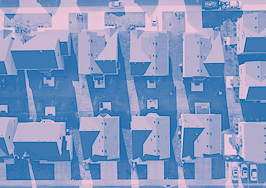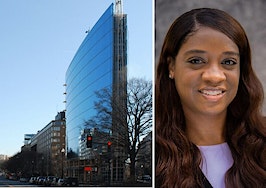It is 2020 and no Black families live in the Hillsdale neighborhood of San Mateo, California. That is by design.
In a New York Times opinion piece published last week, Richard Rothstein, author of The Color of Law: A Forgotten History of How Our Government Segregated America, lays out how the planned community of Hilllsdale was constructed, financed and marketed in the 1940s as a whites-only development and proposes that the real estate businesses responsible should make amends by setting up a fund to integrate it.
In the real estate industry and in the U.S. overall, homeownership is revered as a builder of generational wealth for American families and a solid foundation and springboard for future aspirations. But when public and private interests combine to systematically deny that opportunity to a segment of the population, what responsibility do those in power have to repair the wrongs they have committed, and in what way?
As the country grapples with the continuing effects of racist policies that have resulted in a black-white homeownership gap of 42 percent versus 72 percent, the real estate industry is having a reckoning of its own.
The American Trust Company, which merged with Wells Fargo in 1960, financed the construction of Hillsdale homes and signed deeds that read: “No persons other than members of the Caucasian or White race shall be permitted to occupy any portion of said property, other than as domestics in the employ of the occupants of the premises.”
David D. Bohannon, a developer who built the largest share of homes in Hillsdale and whose company still owns the Hillsdale Shopping Center, barred non-whites from his projects, actively stymied efforts to build racially integrated neighborhoods, and “became one of the biggest developers of whites-only housing throughout the San Francisco Bay Area in the mid-20th century, with significant responsibility for the segregated landscape that persists,” Rothstein wrote.
According to Rothstein, real estate brokerage Fox & Carskadon marketed the Hillsdale homes with newspaper ads touting deed clauses that enforced the neighborhood’s racial exclusivity: “Let us tell you of the protective covenants that guarantee Hillsdale’s enduring character for all time to come.”
At the time, Rothstein notes, Fox & Carskadon was under the National Association of Realtors’ Code of Ethics requirement that “a realtor should never be instrumental in introducing into a neighborhood … members of any race or nationality, or any individuals whose presence will clearly be detrimental to property values in that neighborhood.” That NAR ethics requirement was subsequently scrapped in 1950. Coldwell Banker acquired Fox & Carskadon in 1995.
Rothstein acknowledges that Fox & Carskadon, the Bohannon company and American Trust Company could not have segregated Hillsdale without the support of government agencies, some of whom required the inclusion of racial restrictions on deeds. Even today, he wrote, “the City of San Mateo continues to perpetuate the segregation of many of its white neighborhoods by prohibiting construction of anything but single-family homes — no townhouses, duplexes or apartments affordable to teachers, firefighters, nurses, hotel and restaurant workers, and others who serve the community but cannot afford to live in it.”
But in the Times piece Rothstein focuses on the private companies’ actions and proposes that local activists “embark on a campaign to persuade the Bohannon company, Coldwell Banker and Wells Fargo to face up to their considerable responsibility for the racial segregation and lack of opportunity for Black families that characterize San Mateo.”
He notes that although two of the firms were under different ownership at the time, when Coldwell Banker and Wells Fargo acquired them they “assumed their predecessors’ assets and liabilities.” He suggests that activists insist the three businesses make “substantial contributions” to a fund that would help Black Americans purchase Hillsdale homes that would have been affordable when Black homebuyers were excluded, at $5,450 a piece, or about $100,000 in current dollars.
Today those homes sell for about $1.5 million or more, which means what Rothstein is proposing is not meager.
“Shouldn’t Bohannon, Coldwell Banker and Wells Fargo find the funds to enable African-Americans who qualify for a mortgage on a $100,000 property to purchase Hillsdale houses worth $1.5 million? That’s the kind of commitment that reparations-like private initiatives require, while federal reparations remain far-off, hard to define and without effective political support,” he wrote.
Reached for comment, the companies embraced Rothstein’s general message of working toward racial equity, but ignored his specific proposal for doing so, touting their current efforts instead and leaving the door open to doing “more.”

Ryan Gorman
In an emailed statement, Ryan Gorman, president and CEO of Coldwell Banker, said he had read Rothstein’s op-ed, which Gorman said “called upon Coldwell Banker, among others, to do more to create truly equal opportunity and access to housing for underrepresented populations, especially Black Americans.”
“I applaud Mr. Rothstein for lifting up this issue. I take this call very seriously, and I look forward to continuing and amplifying our work in this extremely important area,” Gorman said.
“While we have recently announced and executed new programs and training, and shared our support for the initiatives of others, we have also requested and fielded input on how we can do more,” he went on. “We can, we should, and we will.”
Coldwell Banker also published a blog post Friday in which Gorman noted that the company had recently created a new fair housing training program and launched its Inclusive Ownership program for minority entrepreneurs.
“While we are unable to change the past, I am proud of what we at Coldwell Banker are doing to change the current and future state of the industry,” Gorman wrote.
“We will measure our success not by words but by impact. The growth — in population and in success — of our Black agents, brokers, and employees is a key measure. Another is the share [of] consumers of color that we are serving across the country,” he added.
The David D. Bohannon Organization also published a blog post in response to Rothstein’s piece. David D. Bohannon II, grandson of the deceased segregationist and president and CEO of his company, apologized for his grandfather’s role in perpetuating systemic racism.

David D. Bohannon II
“While [racial covenants] may have been commonplace for the time, it was categorically wrong. They were racist policies propagated by a racist society. I am not my grandfather and I can’t undo these horrible past practices — but I can apologize and say we are sorry for whatever role our founder, my grandfather, played in America’s policies of systemic racism,” Bohannon II wrote.
He noted that although racial covenants have been struck down by the courts, they were “turned into zoning restrictions that even today are vigorously defended by many in planning commissions and City Councils every week throughout the Bay Area and our state” — a point also made by Rothstein’s book.
“On behalf of my family and the entire Bohannon II organization, we want you to know that we are committed to right past wrongs by building a more equitable community and expand opportunities for all Americans,” Bohannon II continued.
“Our family foundation is actively involved in doing just that through our philanthropic pursuits that seek to build community through equity, access and inclusion. These efforts reflect our shared values as we all seek to build an America that better lives up to the principles of equality and justice for all.”
Rothstein notes that Bohannon was a past president of the National Association of Home Builders. He was inducted into its Hall of Fame in 1977 and remains there. According to the National Association of Realtors, NAHB was a NAR affiliate until it spun off to become an independent organization in 1942. Bohannon was also a member of NAR’s board of directors and on the board of trustees for the Urban Land Institute (ULI), which was also an NAR-owned entity at the time, according to NAR. He was also a director for life of the California Association of Realtors.
In an emailed statement, NAR told Inman, “The viability of our 1.4 million members depends on the free, transparent and efficient transfer of property in this country. NAR continues our work to rectify mistakes of the 20th century and believes that fair housing protections are vital to advancing our nation’s progress toward thriving and inclusive communities. We remain committed to ensuring Realtors are actively fighting discrimination and providing every potential homeowner access to the home and neighborhood of their choice.”
ULI did not respond to a request for comment. A spokesperson for NAHB said the trade group was unable to comment because access to its paper historical files was restricted due to the pandemic.
A spokesperson for C.A.R. said the trade group was unable to verify when Bohannon was selected as a director for life. “Director for life candidates are evaluated based on length of service, quality of service, leadership positions held. Their duties are to act in the best interests of C.A.R.,” the trade group said. In regards to Bohannon’s race policies, C.A.R. said, “Racially and religiously restrictive covenants are an ugly reminder of the prejudice that existed in many of our communities. Such provisions are thankfully illegal and unenforceable today.”
In an emailed statement, Wells Fargo told Inman it was “unable to speak for the practices of American Trust Company prior to its acquisition by Wells Fargo,” but emphasized that diversity and inclusion is one of the company’s core values.
“We want to be clear that Wells Fargo opposes discrimination of any kind. We support those expressing their voice to bring to light the racism and racial inequality experienced by Black and African American people,” the company said, adding, “We must work toward eradicating the racial inequities that exist.” The company also pointed out that last year it “committed $1 billion in philanthropy alone by 2025 to spark housing affordability solutions in collaboration with nonprofits in communities across the country.”
Wells Fargo noted that the economic downturn caused by the pandemic has disproportionately affected “the most vulnerable people — including Black and Hispanic households” and said the company had committed $175 million “to address food, shelter, small business and housing security, and public health that includes more than 1,100 grants to national and local nonprofits focused on keeping more than 100,000 renters and homeowners housed.”
Wells Fargo also said that in 2017 it had set a goal of helping to create 250,000 Black homeowners by 2027 through $60 billion in mortgage lending for home purchases. The bank said it had “made considerable progress toward achieving that commitment and helped more than 60,500 African American families become homeowners over the past three years.”
That’s a rate of just over 20,000 homeowners per year, which is not currently enough to meet that 250,000 goal. Rothstein’s piece also suggested that a Wells Fargo program that provides down-payment assistance to low- and moderate-income homebuyers was unlikely to provide access to the neighborhoods that Black families had been excluded from.
In 2017, the last year Wells Fargo grants were issued in the San Francisco region, the bank provided “about $30,000 to families whose incomes were at or below the area median,” according to Rothstein. “Even when households could add some savings, down payments of that size permitted home purchases only in a few low-income neighborhoods that had not yet gentrified in Oakland and nearby,” let alone a neighborhood like Hillsdale.
Rothstein points out that in San Mateo, no grants have been provided for home purchases. “It is unlikely that the program could ever be adequate to give Black families access to neighborhoods that the American Trust Company helped create as white-only,” he says. “Facing up to this is what addressing the full spectrum of housing issues involves.”
Editor’s note: This story has been updated with additional comments from C.A.R.
Email Andrea V. Brambila.
Like me on Facebook | Follow me on Twitter













